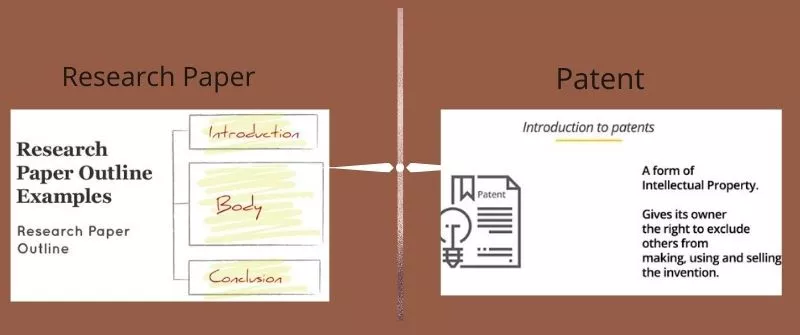One of the most controversial topics that researchers have had different opinions about for a long time is whether or not your research paper can be patented?
It seems that this issue has evoked very different opinions and ideas from people who are trying their best to exercise their legal rights. This article adds a voice to this issue.
Can Research Paper be Patented?
A research paper cannot be patented because academic work and writings are not patentable inventions. In addition, research papers cannot be copyrighted as they are done using other people’s work.
This is because academic research papers contain ideas, theories, or findings from other authors.
These may be present at the outset of a research project or may be the result of personal observations or experiments.

Patent law requires that any patentable invention be useful, novel and non-obvious. Research papers are none of these things.
A patent is a government-granted monopoly on an invention, giving the patent holder the exclusive right to make, use or sell their invention for 20 years from when you filed the patent application in exchange for publishing details about their invention so that others may learn from it.
This arrangement aims to encourage companies to spend money researching new inventions and sharing the knowledge they gain.
The hope is that other inventors will use this information to create new inventions and advance society.
To achieve this goal, patents must meet three requirements:
- Usefulness: A useful invention must have some practical application. Simply performing research does not meet this requirement; some useful results must also be.
- Novelty: An invention must be new to be patented. This means that it must not have existed previously, nor should it have been publicly disclosed by anyone else before the inventor sought a patent.
- Non-obviousness: An invention must not be obvious to be patented. If someone skilled in the related field of technology could easily come up with a new idea.
Why it is not Possible to Patent a Research Paper
There are many reasons why it is impossible to patent a research paper. Some of them include the following:
The Invention has been Disclosed to the Public
One must fill out a patent application within one year after the invention has been disclosed to the public. If your research paper is published in a peer-reviewed journal, then you may not obtain a patent because they disclosed it to the public.
The Invention has been on Sale for more than one year

A patent application must get filed within one year after the invention is sold or offered for sale.
Thus, if your research paper is published in a peer-reviewed journal and you sell copies of it, then you cannot obtain a patent because it must get sold.
The Invention has been in Public use for more than one year
A patent application must get filed within one year after others have used the invention publicly. This includes publicly presenting results from experimental research involving human subjects (human subjects’ rights laws apply).
It is not uncommon for researchers to publish preliminary results in conference proceedings and make presentations before publication in a peer-reviewed journal. Thus, if your research paper is published in a peer-reviewed journal and you make a
Can a Published Paper be Patented?
The answer to your question depends on the type of paper and the method used to get the content in it.
A published paper can be patented if it contains some kind of invention or innovation (which is patentable). That said, the publication of a paper does not necessarily mean that the paper’s content cannot be patented anymore.
Yes, but it depends on the publication venue and timing. No patent can be filed if the paper was published in a peer-reviewed journal or similar venue. After all, if the invention is publicly disclosed, anyone should be free to use it.
No, a published paper cannot be patented if it does not contain anything patentable. Publication may affect the novelty of an invention, though. An invention should be new and non-obvious to those skilled in the art to be patentable.
An invention may be considered non-new if disclosed before a certain date (e.g., by publication), but there are exceptions to this rule (for example, if the disclosure was not made voluntarily by the inventors).
Difference between Patent and Research Paper
Patent: A patent is a legal document filed with the government that gives inventors the right to exclude others from making, using, or selling their invention for a set period. In exchange, they must disclose how their invention works and its uses.
Research paper: A research paper is a piece of academic writing based on its author’s original research on a particular topic and analysis together with an interpretation of research findings.
Research papers are similar to academic essays, but they are usually longer and more detailed assignments, designed to assess not only your writing skills but also your skills in scholarly research.

Other differences are:
- Patents are for inventions, and research papers are for research.
- Patents are for inventions, and research papers are for research.
- They are granted in exchange for full public disclosure of the invention; research papers only publish the research results.
- Patents describe how to make and use an invention (and may include a theory about how it works); research papers usually do not tell how to do anything.
- Additionally, patents generally contain claims which define what is legally protected by the patent; research papers do not contain claims (except those of plagiarism).
- Patents have to be applied for before they can be granted; no such application is necessary before publishing a paper.

Joseph is a freelance journalist and a part-time writer with a particular interest in the gig economy. He writes about schooling, college life, and changing trends in education. When not writing, Joseph is hiking or playing chess.
